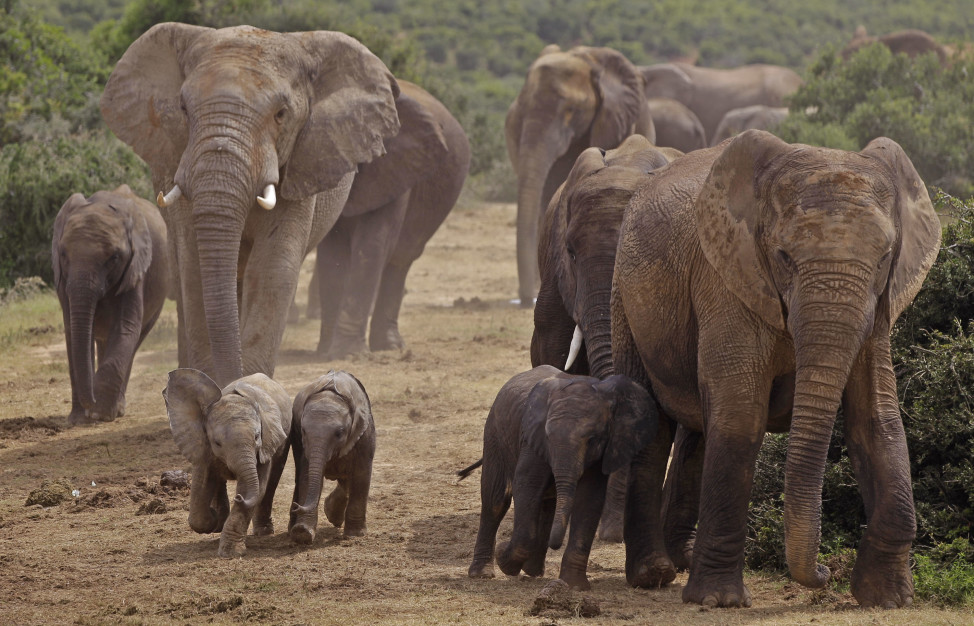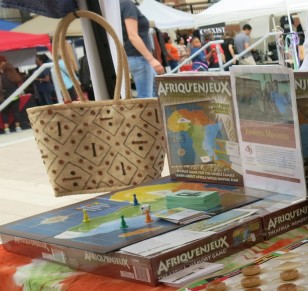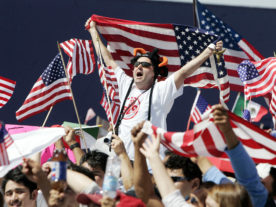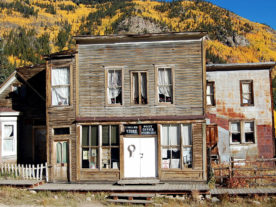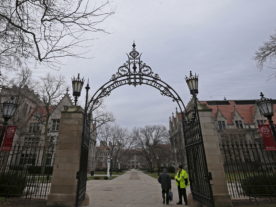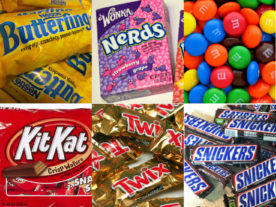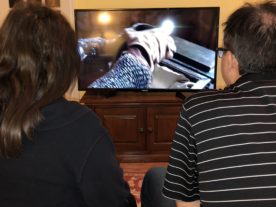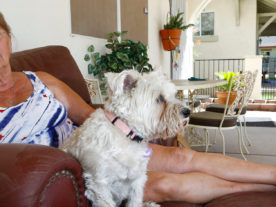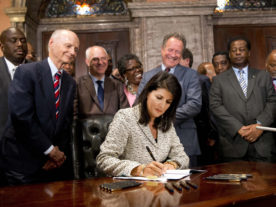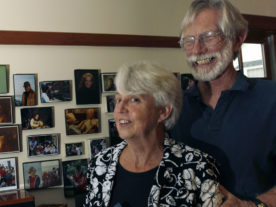“Is Africa a jungle full of elephants and lions?”
“Mommy, do you have AIDS?”
Cameroon native Paulette Mpouma cringed whenever her U.S.-born children posed these and other questions that illustrated how their understanding of her native continent had been shaped by Western stereotypes.
“Their impression of Africa was sickness and poverty and jungle also,” Mpouma said.
This lack of connection on the part of American-born children to their ancestral homeland is a concern shared by other immigrant communities across the United States. For her part, Mpouma, a mother of four, decided to do something about it.
Determined to teach her kids about the breadth and diversity of the 54-nation continent, she created a game board that allowed the children to travel across Africa. At each stop, in order to keep advancing, they had to answer a trivia question about the region where they’d landed. If they couldn’t answer the question, they had to pay fine.
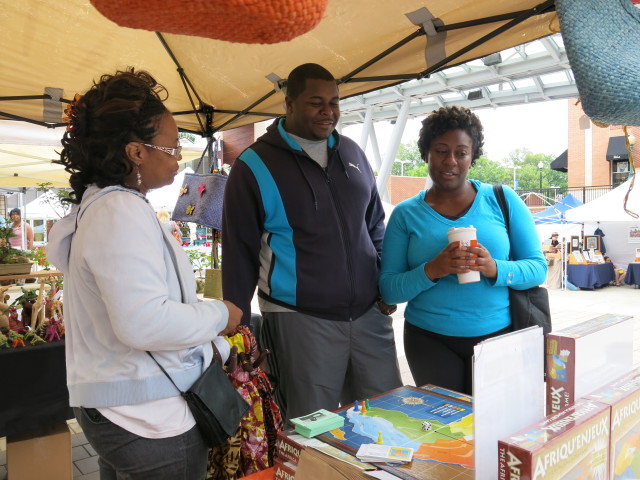
Paulette Mpouma (left) shows The Africa Memory game to potential buyers at the Farmers Market in Silver Spring, Maryland. (Photo by Rosanne Skirble/VOA)
“I want my children to know the diversity and the richness of a continent that is still developing,” she said.
What began as a fun learning experience to teach her children about their roots has now become a cottage industry. Mpouma began manufacturing “The Africa Memory Game”, marketing it to schools and at educational events and shows.
The Smithsonian African Art museum, one of the nation’s premier cultural showcases, carries The Africa Memory Game in its gift shop.
“I went there with the game and I found the curator who said she was looking for something like that for years,” said Mpouma, who brushed up on her business and marketing skills thanks to Empowered Women International, a program geared toward helping immigrant, refugee and low-income women learn entrepreneurial skills. “It started at home, just a little game, but it became a passion.”
Since 2009, she’s sold 6,000 units of The Africa Memory Game and is looking to expand her reach ‒ at the request of mothers from other immigrant communities.
“Lots of Asians have asked,” she said. “Indian mothers who say, ‘Can you do something like that for India?’”
The Africa Memory Game sells for $25 and is manufactured in Michigan.
Like much of its target audience, the game is made in America, but has an international twist.

